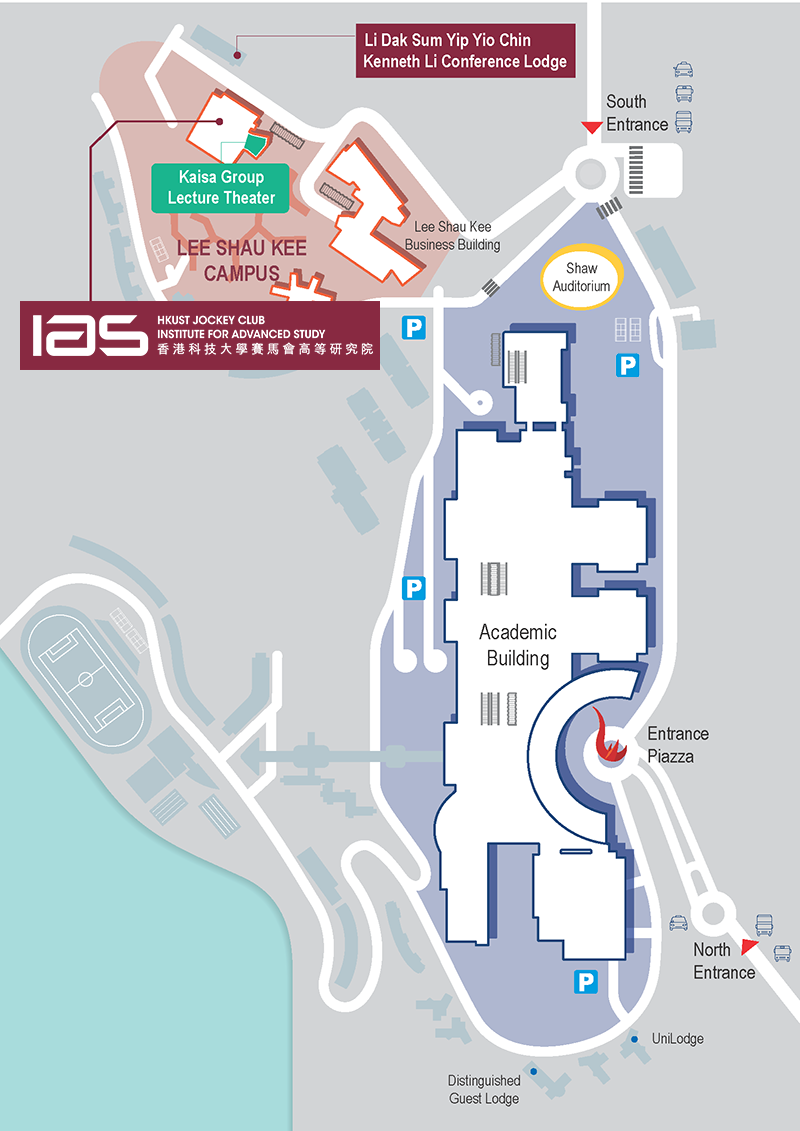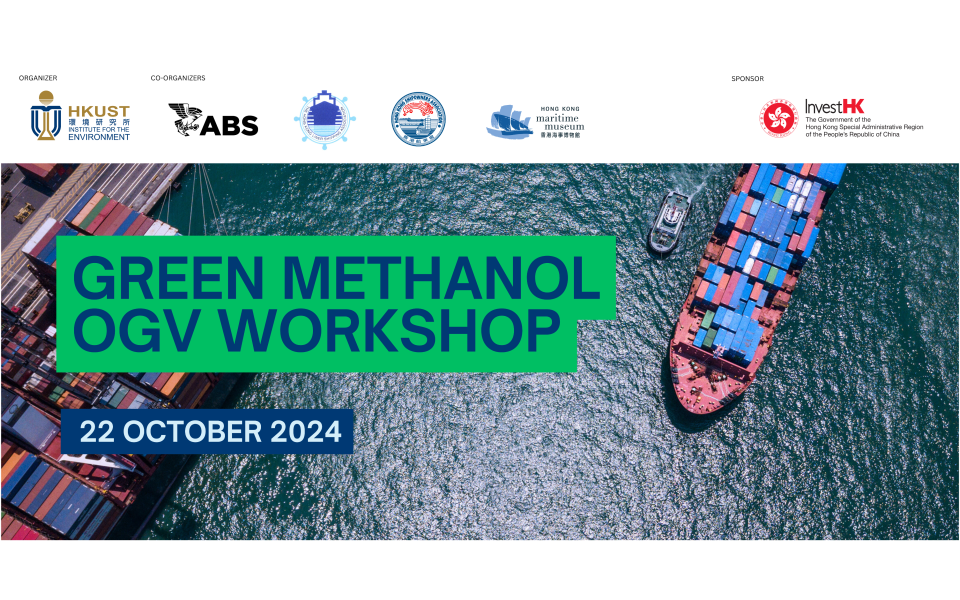Executive Summary
The Green Methanol OGV Workshop, held at Hong Kong University of Science and Technology, examined Hong Kong's readiness for maritime decarbonization as mandatory compliance approaches. The event assembled international experts to assess strategic positioning amid rapidly expanding Asia-Pacific production capacity—with China targeting two-thirds of global renewable methanol supply by 2027. However, demand understanding remains the fundamental bottleneck, as Ms. Freda Fung emphasized: "who should be the first movers that Hong Kong should collaborate with" requires sophisticated analysis to inform strategic partnerships. Three critical barriers emerged. First, competitive positioning urgency: Mr. Roberto Giannetta warned "if other ports do start this and Hong Kong doesn't, we would again be putting ourselves in a disadvantageous commercial position," noting "Shenzhen already has a plan to start to provide this type of incentive for green ships." Second, carbon pricing dependency: Maersk's Mr. Xie Wenxuan emphasized "we really need to have some sort of policy from IMO to promote the adoption of green fuels" as market enabler. Third, fiscal intervention necessity: industry stakeholders identified price gaps requiring government action, with Roberto noting "the price of green fuel is four times what traditional fuel is." Participants identified three research-informed priorities:
- Develop demand analytics to identify optimal green corridors and strategic first-mover partnerships
- Conduct port competitiveness research to analyse Hong Kong's positioning relative to regional ports in the maritime decarbonization transition, examining competitive dynamics and strategic advantages within the evolving low-carbon shipping landscape
- Design fiscal incentive frameworks bridging cost gaps through green finance innovation
Technical Summary
The Green Methanol OGV Workshop took place on 22 October 2024 at the Jockey Club Institute for Advanced Study, Hong Kong University of Science and Technology, marking a strategic initiative to facilitate early adoption of Green Methanol bunkering in Hong Kong's maritime decarbonization efforts. It was organized by the Hong Kong University of Science and Technology, co-organized by American Bureau of Shipping (ABS), Hong Kong Shipowners Association, Hong Kong Liner Shipping Association, and Hong Kong Maritime Museum, with sponsorship by Invest Hong Kong, reflecting strong institutional support from both academic and industry stakeholders.
This specialized green methanol workshop successfully assembled an exceptional gathering of maritime industry leaders spanning the complete ocean-going vessel fuel transition ecosystem, bringing together governmental officials, major shipping companies, fuel suppliers, classification societies, industry associations, and leading academic institutions, reflecting broad-based commitment to advancing zero-emission shipping solutions. The event was distinguished by the participation of Mr. Qiang Shi, Deputy Director of the Hong Kong Marine Department, who outlined concrete government initiatives including the ongoing feasibility study for green fuel bunkering, the development of regulatory frameworks for new fuel operations, and the establishment of a dedicated working group for port and ship safety matters. Mr. Benjamin Wong, Head of Transport and Logistics for InvestHK, presented the Administration's strategic roadmap, highlighting the Chief Executive's vision to develop Hong Kong as a green maritime centre through the green transformation of registered ships and the development of comprehensive green fuel bunkering infrastructure.
The technical program benefited from remarkable corporate leadership representation, featuring Mr. Xie Wenxuan, China Decarbonisation Business Development Manager from Maersk, who detailed the company's ambitious commitment including their major 500,000 tons per annum green methanol supply agreement with Goldwind and their target of transporting 25% of cargo via green fuel by 2030; Mr. Deepak Devendrappa, former Director of Low Carbon Market Development at Methanex, contributing insights from 17 years of methanol fuel development experience including the operation of 19 methanol dual-fuel vessels; and Mr. Sham Man Fai, Chief Operating Officer of Green Fuels and Chemicals Business at Hong Kong and China Gas Company Limited, representing local production capabilities with current 100KT green methanol capacity and expansion plans for the Greater Bay Area. Maritime safety and technical standards perspectives were ensured through Mr. Onur Semiz, Principal Engineer from ABS, providing comprehensive insights on methanol vessel design requirements, bunkering operations, and regulatory frameworks. The academic research framework provided by IENV's shipping emission analysis and route optimization studies demonstrated how evidence-based policy development can support Hong Kong's strategic positioning in this rapidly evolving sector.
The workshop's industry representation encompassed key maritime associations through Mr. Roberto Giannetta, Chairman of the Hong Kong Liner Shipping Association, Mr. Martin Cresswell, Technical Director of the Hong Kong Shipowners Association, and Mr. Zhao Kai, China Chief Representative of the Methanol Institute, who presented the global renewable methanol production landscape and certification schemes. Practical operational expertise was delivered by Mr. Prakash Chandra, Director Technical at Fleet Management Limited, sharing extensive hands-on experience from managing methanol-fueled vessels and developing crew training programs. The academic foundation was strengthened by Prof. Christine Loh, Chief Development Strategist at HKUST Institute for the Environment, Prof. Alexis Lau, Head of HKUST's Division of Environment and Sustainability, and Mr. Zhihang Meng from the International Council on Clean Transportation, who provided critical analysis of methane slip issues and enabling conditions for renewable fuel adoption.
The discussions across both technical presentations and panel sessions underscored the critical window of opportunity facing Hong Kong as the maritime industry rapidly transitions toward decarbonization. This workshop was unique in bringing together the entire green methanol value chain—from Chinese fuel producers to international shipping companies, classification societies, and Hong Kong's maritime infrastructure providers—at a pivotal moment when the industry is scaling from experimental projects to commercial deployment.
Technical readiness has achieved critical mass, but economic barriers remain the primary challenge. With over 300 methanol-capable vessels on order and proven operational experience from pioneers like Methanex's 19-vessel fleet, the technology foundation is established. However, green methanol costs approximately four times conventional fuel, creating an urgent need for carbon pricing mechanisms and government incentives to bridge the economic gap. The industry consensus highlighted that while ships and infrastructure are ready, market activation requires policy intervention to address what Maersk described as the "chicken and egg problem" of supply and demand coordination.
China's manufacturing dominance presents both opportunity and urgency for Hong Kong's positioning. Industry experts detailed China's substantial cost advantages: biomass feedstock prices roughly 50% lower than the US, renewable energy installations 30% cheaper than Europe, and water electrolysers at nearly half the global price. With China projected to supply two-thirds of global renewable methanol capacity by 2027, Hong Kong's proximity to this production base—combined with its established advantages of rule of law, financial services, maritime expertise, and existing bunkering infrastructure—positions it strategically for green fuel trading and bunkering operations.
Infrastructure development requires immediate pilot projects while planning for scale. Participants emphasized starting with conventional methanol to gain operational experience in bunkering and storage, then transitioning to green variants as supply develops. The discussions revealed that Hong Kong's projected green fuel demand alone may be insufficient to justify dedicated facilities, but becomes viable when combined with trading hub functions. Following the Airport Authority's Permanent Aviation Fuel Facility model—government-initiated, privately-funded centralized infrastructure—emerged as a preferred approach for methanol storage development
Regulatory speed and government leadership emerged as critical differentiators in the context of port competition. Participants emphasized intense regional port competition and the risk of being left behind as shipping routes and infrastructure investments solidify around early-mover ports. The consensus stressed that Hong Kong cannot afford to wait for perfect market conditions—it must act as a first-mover to establish position before competitors capture market share, particularly as Shenzhen announces green shipping incentives and other Chinese ports advance their capabilities.
Safety and certification frameworks require urgent attention and investment. Technical presentations highlighted methanol's unique operational challenges—invisible flames, toxicity concerns, and specialized crew training requirements—necessitating comprehensive safety protocols and training programs. The workshop identified Hong Kong's potential to become a regional training hub for green fuel handling, following successful models like Denmark's Mærsk Mc-Kinney Møller Center (US$200 million annual budget) and Singapore's GCMD (US$100 million budget). Equally critical is the development of robust certification and traceability systems, as the industry transitions from European-dominated schemes to more globally distributed frameworks.
The looming impact of carbon levies provided the temporal framework driving all strategic decisions. With IMO's mid-term measures expected by April 2025 and implementation by 2028, participants repeatedly emphasized the narrow three-year window for preparation. The anticipated fee-bate system—penalizing fossil fuel use while incentivizing green alternatives—will fundamentally alter shipping economics, making early positioning in green fuel infrastructure a competitive necessity rather than an environmental preference.
Panel Discussion: Roadmap, Get the infrastructure ready and Demand aggregation for methanol bunkering in Hong Kong
Prof. Christine Loh (HKUST) was the moderator of the Panel which addressed four major themes detailed as follows, ended with policy recommendations for Hong Kong Government.
Industry Leadership and Market Development
1. Mr Wenxuan Xie (Maersk China) outlined Maersk's pioneering role in methanol adoption. The company signed one of the largest green methanol deals globally with Goldwind for 500,000 tons per annum starting in 2026, demonstrating commitment to solving the chicken and egg problem in green fuel markets. "Maersk is really trying to solve the chicken and egg problem. To activate this market, you really have to send a very clear signal that there is some company willing to take the risk." Maersk targets net zero by 2040 and 25% green fuel cargo transport by 2030.
2. Mr Deepak Devendrappa (Ex-Methanex) traced methanol's journey from Chinese gasoline blending to marine fuel adoption. Methanex operates 19 methanol-powered vessels consuming 40-50,000 tons annually. Market breakthrough occurred when Maersk entered, leading to approximately 300 vessel orders potentially creating 10 million tonnes annual demand. "Once Maersk announced, the world started noticing methanol as a fuel."
3. Mr Sham Man Fai (HKCG) described their transformation into a low-carbon energy provider, currently producing 100,000 tons of certified green methanol with expansion plans in the Greater Bay Area.
Technical Challenges and Infrastructure Requirements
4. Mr Prakash Chandra (FML) detailed methanol's technical evolution since 2012, highlighting development challenges overcome through collaboration with MAN engines. Current third-generation engines show stable performance after initial issues through 2021. "Methanol is one of the best to handle, and we developed the way forward for the training requirements."
5. Mr Kai Zhao (Methanol Institute) emphasized infrastructure needs including specialized storage with floating roofs, bunkering barge development, and staff training for new fuel handling. He noted 80% of announced renewable methanol projects remain in early stages with potential financing gaps.
6. Multiple participants from the floor highlighted safety considerations, including methanol's invisible flame, toxicity concerns, and specialized firefighting requirements necessitating comprehensive crew training programs.
Economic Challenges and Cost Reduction Strategies
7. Mr Roberto Giannetta (HKLSA) identified cost as the primary barrier, with green fuel costing four times traditional fuel. He advocated for government initiatives to narrow price gaps through fees for fossil fuel users or discounts for green vessels, emphasizing regional coordination to avoid competitive disadvantages.
8. Cost reduction potential emerged from multiple sources: Kai noted Chinese biomass feedstock costs approximately half those in the U.S., while renewable hydrogen infrastructure costs 30% less than U.S./European equivalents. Sham emphasized that stable demand would enable upstream optimization and economies of scale. Wenxuan stressed the necessity for IMO policies implementing fee-bate systems where "fossil fuel users would incur additional costs while green fuel adopters received incentives.
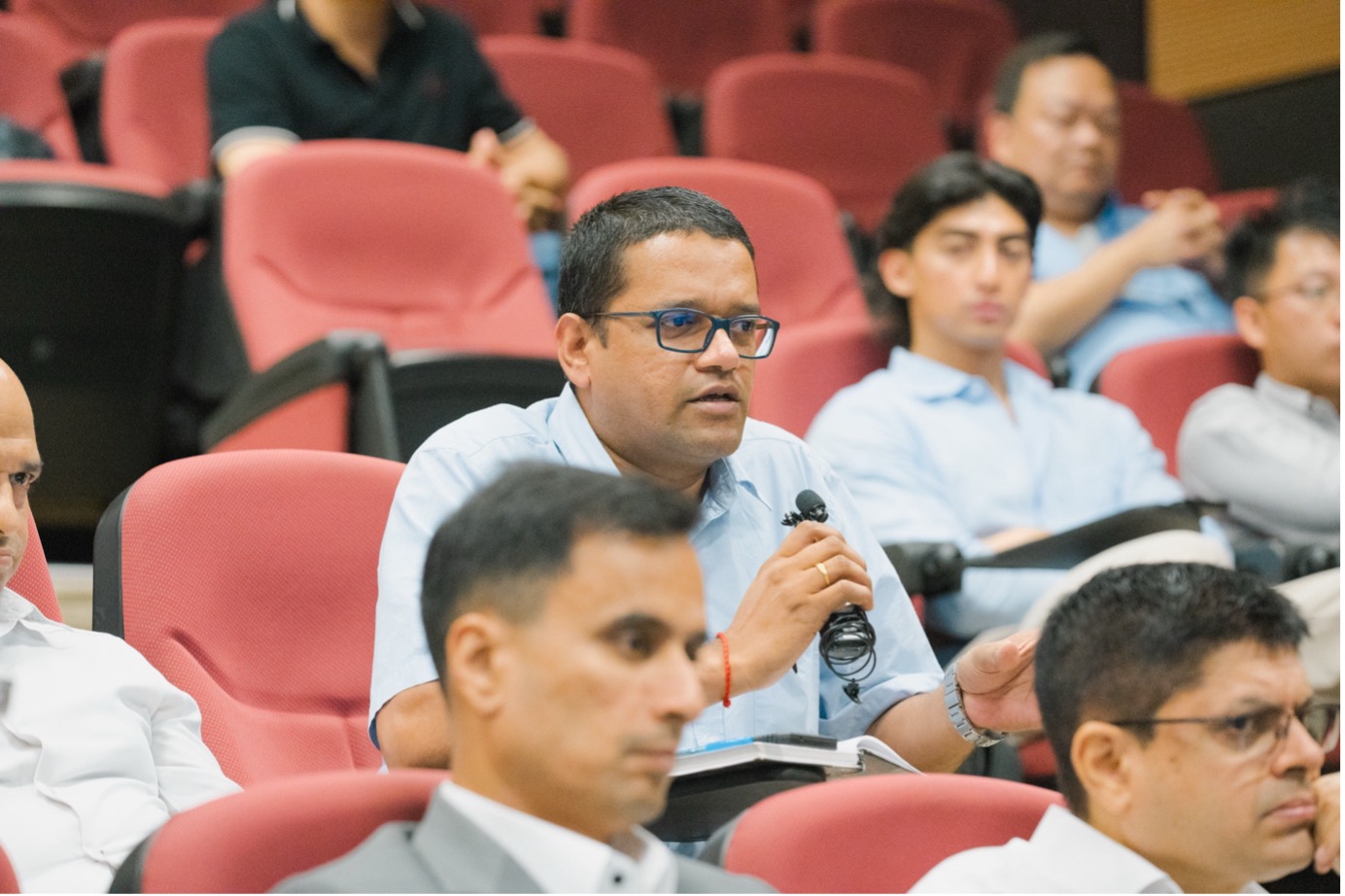
Hong Kong's Strategic Positioning and Opportunities
9. Several members emphasized geographic advantages. With China's projected two-thirds share of global renewable methanol production by 2026-2027, Hong Kong is positioned as a potential trading and transhipment hub.
10. Mr Martin Cresswell (HKSOA) highlighted Hong Kong's current fuel import capacity of 16.5 million tons annually via 450 tankers, creating backhaul opportunities for green fuel distribution. "Singapore doesn't create any green fuel. So if China is a very large manufacturer of green fuels, somehow if we could get it to Hong Kong, store it, use these tankers on a backhaul route to Singapore, that would be a good solution." He noted that regulatory timing is critical: “IMO mid-term measures is expected by April 2025 and implementation by January 2028, providing a three-year window for preparation.”
Policy Recommendations for Hong Kong Government
11. Christine asked each panel member to provide specific recommendations for Hong Kong's development strategy:
- · Immediate Actions: Prakash advocated for establishing a dedicated green fund similar to Singapore's multi-hundred million dollar annual investments, and initiating pilot bunkering projects with 5,000-6,000 cubic meter capacity tanks.
- ·Infrastructure Development: Sham recommended government support for centralized storage facilities modelled on the Airport Authority's Permanent Aviation Fuel Facility, funded through private sector participation.
- ·Capacity Building: Kai proposed significant investment in training and knowledge sharing, citing Denmark's Mærsk Mc-Kinney Møller Center ($200 million annual budget) and Singapore's GCMD ($100 million budget) as models.
- ·Risk-Taking Approach: Wenxuan urged calculated risk-taking in infrastructure investments rather than requiring full off-take agreements before proceeding.
12. Christine concluded by emphasizing collaboration necessity among stakeholders to create unified implementation plans. With main demand projected for 2027-2028, Hong Kong has a narrow but viable window to establish itself as a regional green fuel hub. "We have the team. We have the ideas. You need to refine it a bit. You need to communicate a bit. You need to tell everybody so we're assured that actually HK still has an opportunity." She summarized HK's potential competitive advantages by the Panel: “established bunkering infrastructure, proximity to Chinese production centres, financial services ecosystem, and rule of law, positioning it to become both a physical bunkering hub and green fuel trading centre.”
Event Intro
The Hong Kong Special Administrative Region (HKSAR) is positioning itself as a leading bunkering hub for near zero and zero emission (ZNZ) fuels. The first step, bunkering of liquefied natural gas (LNG), is expected to be ready soon. Hong Kong’s bunkering hub for fossil fuels is well established and is the 7th largest globally, meeting the dual demand of ocean-going vessels (OGV) calling at the port and also for ships that bunker outside port limits (OPL). If plentiful supply of ZNZ fuels, developed in China, could continually be supplied to Hong Kong, a transhipment trade in these new fuels could also be a future opportunity.
All forecasts for the shipping sector’s future energy mix, due to regulatory pressures of the EU ETS scheme, the upcoming FuelEU Maritime plus the International Maritime Organization (IMO)’s mid-term measures, suggests that Green Methanol will account for a substantial share of the ZNZ fuels.
To this end, the Institute for the Environment of the Hong Kong University of Science & Technology (HKUST) in support of the HKSAR Government (HKSARG), organized a OGV Workshop on Green Methanol. This will be of interest to many maritime stakeholders, Shipowners, Bunker suppliers, Fuel storage facilities, Berth owners and various Government Departments, etc. Noting that a few methanol-capable OGVs are already operating, with many more expected, the future demand for Green Methanol bunkering is assured. The workshop aims to facilitate early adoption of Green Methanol bunkering in Hong Kong.
Sponsor: InvestHK, HKSARG
PROGRAMME
|
Time |
Sessions | Speakers | PPT |
| Part I | Preliminaries (50”) | |||
| 1400 – 1420 |
Welcome Opening Speeches/ Photo-taking |
HKUST Marine Department (MD)/ InvestHK |
|
| 1420 – 1435 | OGV Case Studies on Emissions Reduction and Decarbonization of some Green Corridors of HK Voyages | HKUST | |
| 1435 – 1440 | Methane slip reduction technologies and the enabling conditions for renewable hydrogen-derived fuels (green methane, ammonia & hydrogen) | International Council on Clean Transportation (ICCT) | [PPT] |
| Part II | Infrastructure Planning (95”) | |||
| 1450 – 1505 | Green methanol supply & demand, certification/ traceability, sustainability requirement, blended methanol | Methanol Institute (MI) | [PPT] |
| 1505 – 1625 | Panel discussion – discuss roadmap, get the infrastructure ready and demand aggregation for methanol bunkering in HK |
HKUST (moderator) MI Maersk HK & China Gas Ex-Methanex Staff Fleet Management Ltd (FML) HKLSA HKSOA |
[PPT] |
| 1625 – 1645 | Break (20”) | ||
| Part III | Methanol Bunkering (75”) | |||
| 1645 – 1705 | ABS Energy Transition and Methanol Fueled Vessels | ABS | [PPT] |
| 1705 – 1720 | Crew training, preparedness and procedures for handling Methanol fuelled ships | Fleet Management Ltd. | [PPT] |
| 1720 – 1745 | Methanol Bunkering Operations | ABS | [PPT] |
| 1745 – 1755 | Questions & Answers | ||
| 1755 – 1800 | Closing Remarks | HKUST | |
SPEAKERS (in order of speakers' appearance)
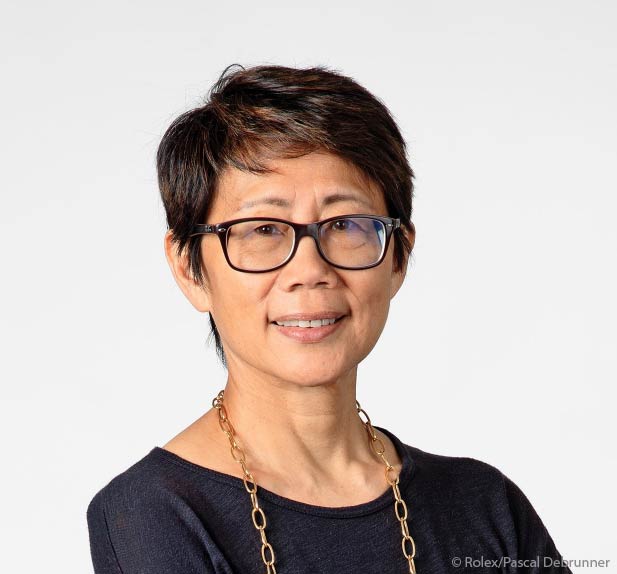
Prof. Christine Loh
Prof. Christine Loh is the Chief Development Strategist at the Institute for the Environment, Hong Kong University of Science and Technology (HKUST). Previously, she held the positions of Special Consultant to the Office of the Chief Executive of the HKSAR Government on the ecological civilization aspects of the Greater Bay Area Outline Development Plan (2019-2020); and Under Secretary for the Environment in the HKSAR Government (2012-2017). She was the CEO of Civic Exchange, an independent non-profit public policy think tank (2000-2012). Before that, Prof. Loh served as a member of the Hong Kong Legislative Council, first appointed in 1992 and later elected in 1995 and 1998. Earlier, she spent 14 years in the private commercial sector in commodities trading. Currently, she is a Director of New Forests Pty Limited, Towngas Smart Energy Company Limited, CDP Worldwide, and Global Maritime Forum. She is also a founding Advisor to Hong Kong Green Finance Association.
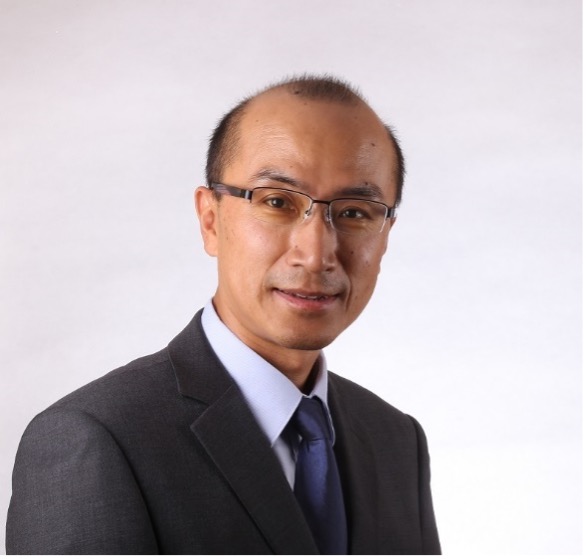
Mr. Qiang Shi
Mr. Shi currently serves as the Deputy Director of the Hong Kong Marine Department, where he leads the Local Vessels and Examination Division, Multi-lateral Policy Division, Port Control Division, and Shipping Division. Mr. Shi began his career onboard container ships as a deck officer. After obtaining his Master Mariner qualification, he transitioned ashore and held managerial positions with major shipping companies, focusing on crew manning and marine operations. In 2007, Mr. Shi joined the Marine Department as a government surveyor. Throughout his tenure, he has handled a diverse range of responsibilities, including port state control, flag state administration, marine legislation, seafarers training and certification, and local vessel safety, among others.
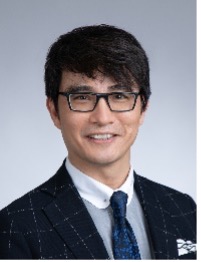
Mr. Benjamin Wong
Benjamin Wong, Head of Transport and Logistics at InvestHK, is a key figure in promoting Hong Kong as an international maritime hub. He serves on several maritime and logistics committees, including the Hong Kong Maritime and Port Board. From 2022 to 2024, Wong led the Office for Attracting Strategic Enterprises, focusing on new energy technology and advanced manufacturing. With extensive experience in both private and public sectors, Wong combines expertise in economic development, international marketing, and investment promotion. He holds MBA and bachelor's degrees from prestigious universities and has participated in elite academic programs. Wong is an advisor at the Chinese University of Hong Kong and was named among the "Top 100 Chinese in the Maritime Industry" in 2020.

Mr. Jiajing Chen
CHEN Jiajing is a PhD student in the Division of Environment and Sustainability (ENVR) at the Hong Kong University of Science and Technology (HKUST). He holds a master's degree in international shipping management, also obtained in Hong Kong, and has gained substantial experience in the shipping industry across both Mainland China and Hong Kong. His research and professional interests are centered on green and sustainable shipping practices, with a particular focus on the application of big data in the shipping industry.

Mr. Zhihang Meng
Zhihang Meng is a Researcher on the Marine team in ICCT. He leads and supports research on maritime policies about vessel efficiency, financing deployment of zero-emission vessels, life-cycle GHG emissions from shipping, and green shipping corridor potential. Zhihang has a Master’s degree in Environmental Engineering from the Tsinghua University.

Mr. Zhao Kai
Mr. Zhao Kai serves at the Methanol Institute (MI)’s China Chief Representative, based in Beijing. In this role, Mr. Zhao is responsible for supporting and advancing the Association’s public policy activities in China, in combination with the Methanol Institute (MI)’s CEO and COO. He provides strategic development and tactical leadership of MI’s government relations/affairs activities in China, including liaising with MI members, affiliated Chinese trade associations, government officials, and media on areas affecting the methanol industry. Mr. Zhao is also responsible for helping to drive initiatives aimed at fostering safe use and handling of methanol and derivative products in China. Additionally, he provides support services to existing MI members in China and to recruit new members into the Association.
Mr. Xie Wenxuan
China Decarbonisation Business Development Manager, Maersk
Wenxuan is currently a Decarbonization business development manager of Maersk in China. His responsibilities include but not limited to green fuel project market development and project scouting, renewable power and green fuel market intelligence and value chain modelling, shipping decarbonization policy lobbying. Prior to joining Maersk, he was a senior analyst and managing consultant at Wood Mackenzie, where he led the coverage of the China Power Market including analytics, modelling and market intelligence. Wenxuan also worked in Vestas as a Power-to-X specialist.
He developed PtX.Wizard application, which is one of the first Power-to-X value chain optimization and financial analysis software in the industry. He (co-) authored multiple research reports on: China long-term provincial power price forecast up to 2050 LCOE/LCOH forecast for China and Japan China’s energy policy in 14th FYP He holds a PhD degree in Aerospace Engineering from Politecnico di Milano.
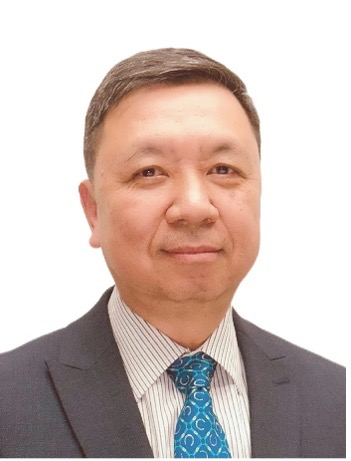
Mr. Sham Man Fai
Chief Operating Officer of Green Fuels and Chemicals Business, The Hong Kong and China Gas Company Limited. MF has over 30 years of experience in gas utility, gas applications and technology R&D, chemical plants operations, and project management. MF is currently leading a team in technology development for production of sustainable low carbon energy and chemicals products by utilizing waste biomass as feedstock. Products are readily available in volume with prime focus on green methanol for alternative marine fuels and green chemicals applications, complying with stringent international sustainability certification system. The business is a pioneer in Asia and is expanding its capacity to meet upcoming demand worldwide.
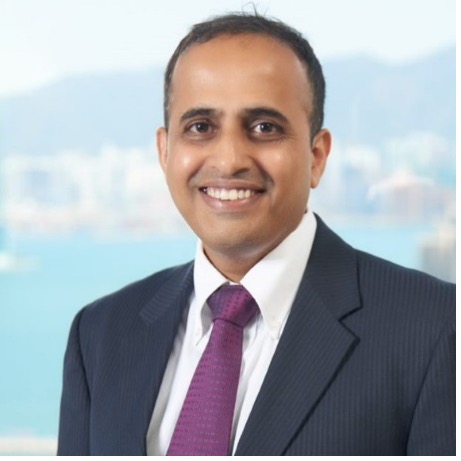
Mr. Deepak Devendrappa
Mr. Devendrappa was the Director of Low Carbon Market Development, Methanex. As the Director of Low Carbon Market Development, Devendrappa have built a dynamic team promoting and commercializing Methanol as a Low carbon and Green Fuel, especially as a Marine fuel, working with Global Shipping companies, OEMs, Port Authorities, Classification societies, Industry associations and other key stakeholders leading to the establishment of a 10-million-ton market for methanol as shipping fuel. After graduating with from HKUST/ University of Berkley, with a MBA degree, Devendrappa have spent his career with Methanex leading Marketing in Asia and Globally, followed by Business Development in Asia/China, and then as the Director of Operations and Logistics Asia, before assuming the current role. Devendrappa is passionate about ESG - Transition to low carbon economy, Decarbonisation and Sustainability. From May 2024, Devendrappa is pursuing the Sustainable Leadership Program for Senior Executives at INSEAD, exploring Sustainability as a Strategic opportunity.

Mr. Prakash Chandra
Prakash Chandra is a seasoned expert in the marine industry with 34 years of experience. Currently the Director Technical at Fleet Management Limited in Hong Kong, he holds a Bachelor of Engineering in Marine Engineering from DMET India, a Diploma in LNG Shipping from the University of Portsmouth, and has completed Executive Education in Business Management at NUS Business School, Singapore. Chandra's career includes 12 years at sea, 2 years as a Marine Surveyor with ABS, and 20 years as a Vessel Manager. He specializes in the technical management of specialized fleets such as LNG, LPG, and various tankers, as well as new building supervision. Notably, he led projects on methanol-fueled vessel operations and ammonia as fuel. Actively engaged in zero-carbon shipping initiatives, Chandra collaborates with international consortiums like SABRE, RADIUS, and WAVE, and serves on the Gas Committee at Intertanko, promoting sustainability in the industry.
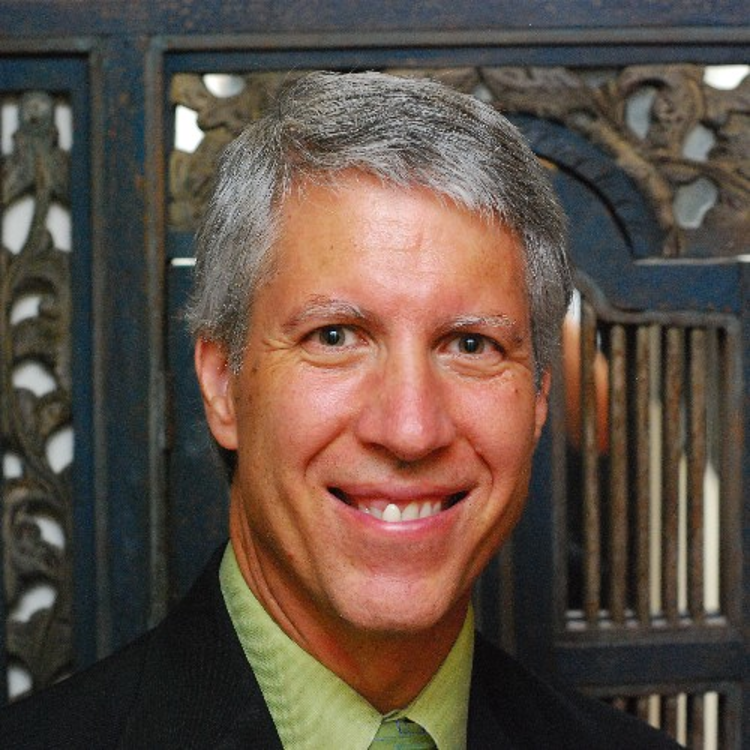
Mr. Roberto Giannetta
Chairman at Hong Kong Liner Shipping Association. Industry veteran with 30 years experience advising and representing container liner interests on operational, safety, environmental, trade, and regulatory matters. Roberto is a consummate team-player with strong articulate and persuasive communication skills, broad international and multicultural experience in Asia, Europe, North and South America, multi-lingual (English, Italian, Portuguese, and conversant in Chinese and Spanish), strong leadership skills, and passionate about service relationship building. Originally from Brazil of Italian parents, educated in Europe and US, and building a career in Asia since 1986, Roberto understands the dynamics of cross-cultural business relationships, how to communicate and lead in diverse settings, and ultimately, how to "get the job done".

Mr. Martin Cresswell
Martin is a Marine Engineer who has over 40 years’ experience, operating, managing and building merchant ships. He was a Board Member of the China Navigation Company, a British Shipowner, part of the Swire Group, for 15yrs before retiring in November 2016. Martin is currently the Technical Director of the Hong Kong Shipowners Association and continues to work in shipping in various technical roles.
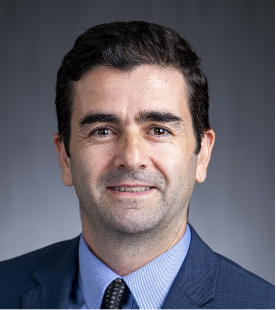
Mr. Onur Semiz
Onur Semiz is a naval architect and marine engineer with 20 years of experience in Maritime and Offshore industries. He joined ABS Head Quarters in Houston Texas in 2022 as a Principal Engineer in Corporate Technology/Energy Transition, working on ship machinery, systems, alternative fuels, and novel technologies. He specializes in alternative fuels (e.g. Ammonia-Methanol-Hydrogen) and understands their benefits and technical challenges. At the beginning of his career, he worked in shipyards as a commissioning engineer, as well as a design and planning engineer on new construction oil and chemical tankers. Prior to joining ABS, Onur worked with another Classification society where he gained experience in the design aspects of LNG-fueled ships and large cruise vessels.
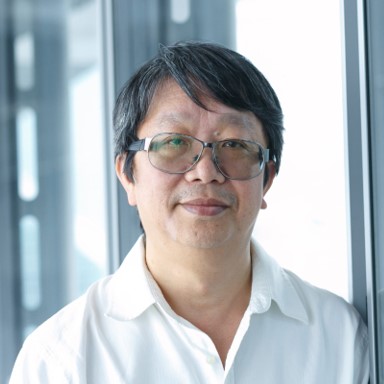
Prof. Alexis Lau
Prof. Alexis Lau, JP, is Head and Chair Professor of Division of Environment and Sustainability, Chair Professor of Department of Civil and Environmental Engineering, and Director of the Institute for the Environment at Hong Kong University of Science and Technology.
Prof. Lau specializes in air quality and health exposure, weather and climate, and environmental policies, with recent focuses on climate adaptation and resilience, as well as shaping the transition to green finance based on climate science. His professional techniques include the analysis of large-scale geophysical datasets, numerical models, and in-situ and satellite remote sensing.
Prof. Lau is a fellow of the Hong Kong Meteorological Society, a founding member of the Hong Kong Climate Change Forum, a scientific advisor to the Hong Kong Observatory, as well as a founding board member and chair of the Qualification Panel of the Hong Kong Institute of Qualified Environmental Professionals. Currently, Prof. Lau is leading the first pan-Pearl River Delta Air Quality study managed jointly by the regional governments under the “Cooperation Agreement on Regional Air Pollution Control and Prevention among Hong Kong, Guangdong, and Macao”. Additionally, he is a member of the Scientific Advisory Group of the World Health Organization Panel on the development of a Global Platform on Air Quality and Health.
Join us in shaping the future of sustainable maritime operations in Hong Kong!
Disclaimer: The views expressed by speakers or moderator do not necessarily reflect the official policies of HKUST, supporting organizations or the sponsor, nor does mention of commercial practices or companies imply endorsement of HKUST, supporting organizations or the sponsor.
The event will be held in the lecture theatre of Jockey Club Institute for Advanced Study - IAS (Lo Ka Chung Building). It is located at the top of the hill at Lee Shau Kee Campus. The closest entrance is the South Entrance of the campus. The closest carpark is located next to Shaw Auditorium and Tower A.
Details of the location: https://ias.hkust.edu.hk/sites/ias.prod01.ust.hk/files/about_us/contact_us/ias_map.pdf
